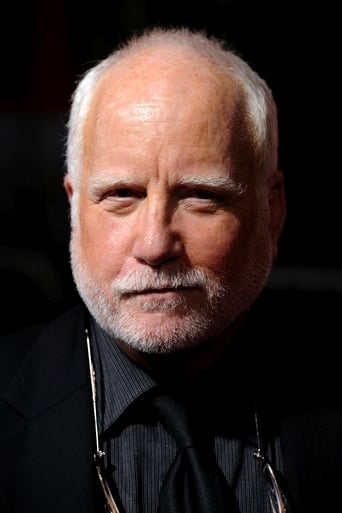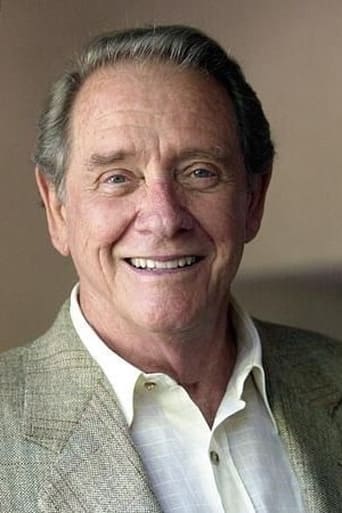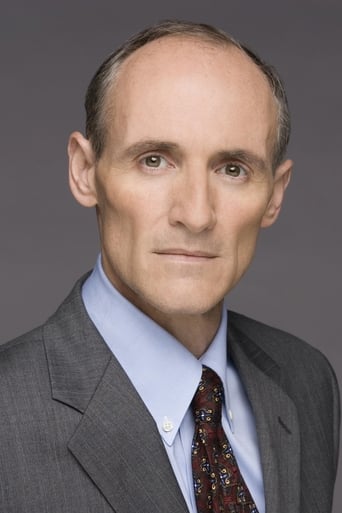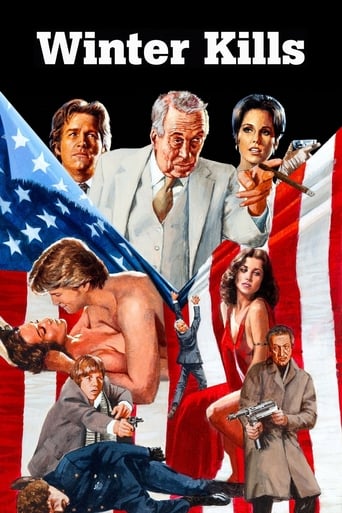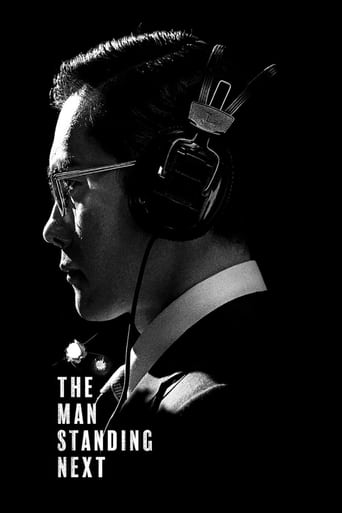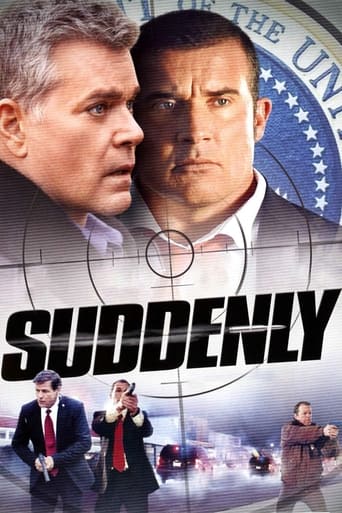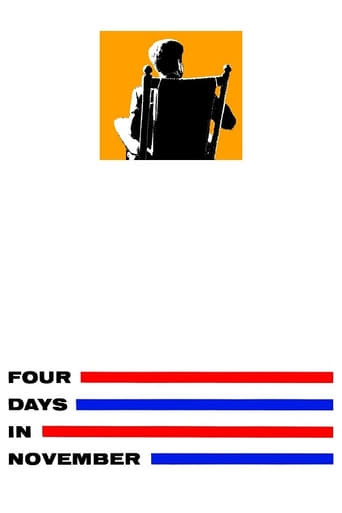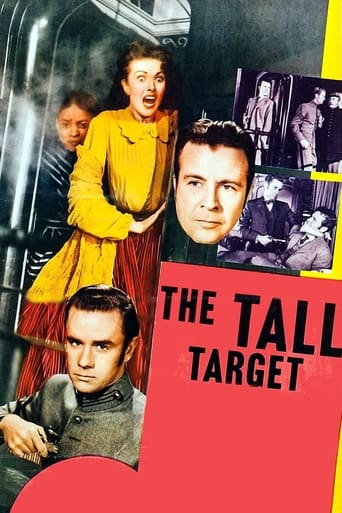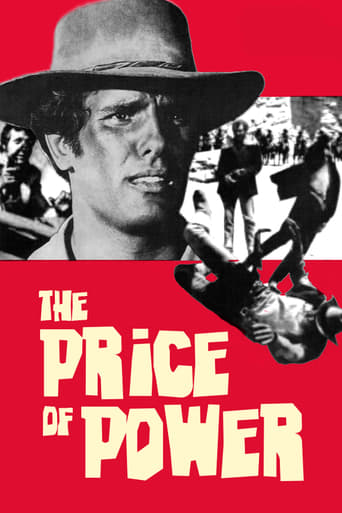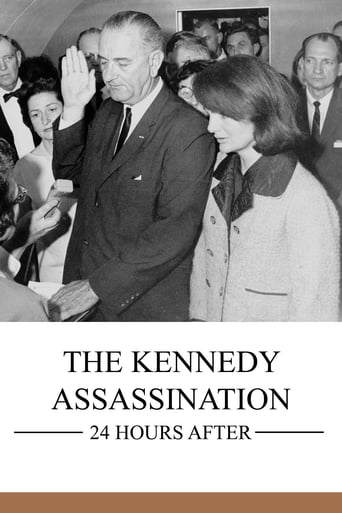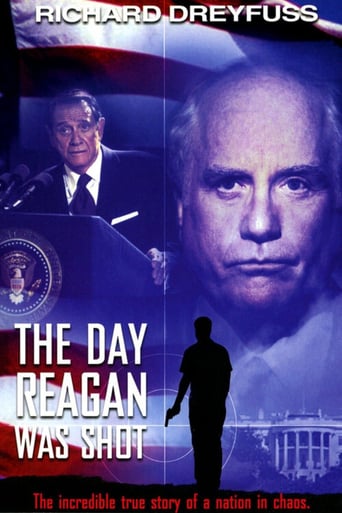
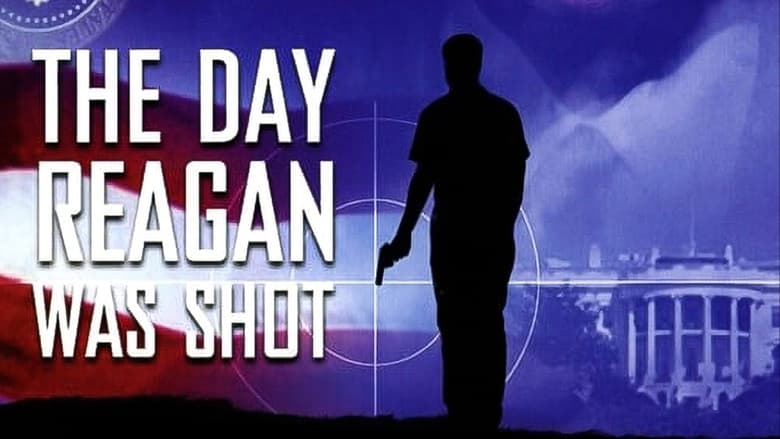
The Day Reagan Was Shot (2001)
The Day Reagan Was Shot is a 2001 film made for television directed by Cyrus Nowrasteh. The film stars Richard Dreyfuss as Alexander Haig and Richard Crenna as Ronald Reagan.
Watch Trailer
Cast


Similar titles

Reviews
While the drama of this movie was entertaining, the reality was that the only people who got their knickers in a twist about this at the time were the media. In fact, it was only later that the anti-nuclear crowd, the bow-tied Harvard elite used this as a political opportunity to question whose finger was really on the trigger, and was the constitution was being ignored!For those that look at movies to perform some sort of academic gratification or for those who live for governmental conspiracy theories and anti nuclear messages then this is the stuff for you. While 12 DAYS IN MAY was fiction and JFK stuffed with so many wild theories and ludicrous speculation THE DAY REAGAN WAS SHOT was a factual event that Hollywood has distorted to suggest we were near a nuclear war or a constitutional meltdown. Non of this was true, sure international politics at the time were tense, but the fact of the matter was that as soon as the president is incapacitated the constitutional procedure follows that the vice president takes charge. Al Hague said that he was in charge of the White House that is irrelevant if he has not got access to the nuclear codes that the President and Vice president has.Interestingly was has been overlooked was that between 1981-1984 the USSR had to replace it's doddering and bedridden premiers three times until they put in Mikhail Gorbachov. Nobody in Hollywood seemed too be worried whose fingers were on the Soviets trigger for all that time bearing in mind some of them were never seen in public for months and were in a comatose state for weeks!!
The Left leaning can really ruin a film, and I was expecting the worse. I was surprised with this film, except for the dramatizations of Haig, this film is somewhat accurate. Panic, disorganization, big time mistakes (ie the ex midterm) do happen. Agency in-fighting, phones not working is part of our imperfect world. The devil takes advantage of us when we are at our weakest. Maybe, someone can answer this question, but I do believe Weinberger, and Haig did not get along? How much of this is overdramatized I do not know. What I did like is they showed at the end, Haig loves his country, and did his best to help and lead in a time of crisis. What I really hate is that they left out that the US had to show that Reagan was strong, for the cold war sake, Bush and the rest knew this. This is part of the art of war. Did they really ask the secret service to leave the operating room, some many facts I did forget. I could imagine the stress the oval office has and what could be done in a time of crisis, like 9/11.6 out of 10 Mike
One of the fundamental issues in social life is the difference between the real life we lead and the way we see ourselves behaving, the difference between substance and perception.The crisis here involved maintaining the perception that all was hunky dory.Well, there were clips of the shooting repeatedly shown on TV so the incident couldn't readily be denied outright. But Reagan was reported walking unaided into GWH and joking with the medical staff, so he was perfectly all right except maybe with an injured rib or something. Brady was clearly in bad shape but we heard much less about him, and even less about the other victims. Reagan was always in good shape, never in danger, and was seen waving from the hospital window with that marvelous grin, back at work in no time.That was the perception we were handed by governmental spokesmen and a media happy to oblige. The substance was that Reagan was quite seriously injured, with a bullet lodged between his collapsed lung and his heart. A seventy-year-old man, he didn't respond readily to treatment and took months to recover. During part of that time of course he was narcotized and no longer in control of the government or anything else. The "football" which could start a nuclear war was taken by the FBI, who refused to turn it over to anyone except Vice President Bush, who was incommunicado, and then only when so authorized by the AG. Alexander Haigue, Secretary of State, seems to have promptly taken over the reins but was challenged by a number of other members of the cabinet. (As a result, nobody knew who, if anyone, was "minding the store.") The code card that activated the football had been left in a wallet in Reagan's pants, which had been thrown into a hospital laundry hamper. The reason the Vice President was incommunicado was that the phones didn't work. Caspar Weinberger, Secretary of Defense, raised the defcom level on his own, leading the USSR to believe that perhaps we blamed them for the shooting and were about to strike back. There is an illuminating exchange between Hague and the Chairman of the Joint Chiefs during these arguments. Hague: "Can the Soviet Union launch a first strike?" Chairman: "Yes, they can." Hague: "How do we stop it?" Chairman: "Launch a first strike." VP Bush wasn't much help in clarifying things, refusing to take over as Acting President partly because his doing so would look in the press as an admission that Reagan was incapacitated (which of course he was). That was the substance. But sometimes, through perfectly ordinary mistakes, the perception that was prepared for the public ("Everything's just fine") was contradicted. Alexander Hague got his line of succession wrong on TV in public. It had been changed in the late 1960s and he gave the earlier version. That statement shook up the press a bit, but as an error it was strictly minor league compared to what was going on behind the scenes.You don't really need to be a conspiracy theorist to see with what condescension the public is treated by powerful political figures and, with some exceptions, by the press. As things fall apart and the center is in danger of not holding, as the formal norms fail to be observed, as the substance becomes rent with disagreement and disbelief, a perception is gradually agreed upon that will be handed to the public. It doesn't have to be true (it doesn't even have to be compellingly believable) but it has to be as soothing as a dose of Pepto-Bismol otherwise the great unwashed, whose intelligence is far too low to manage the complexities involved in understanding the substance, will panic.The movie is, as I say, pretty well done. Dreyfus is a much more commanding figure than Hague appeared to be in interviews, but he did miss one outstanding moment in this real-life drama. It had to do exclusively with perception, not substance. In trying to calm the TV audience by saying that everything is proceeding normally, and "I'm in charge now," the most dramatic impression wasn't so much that he'd gotten the line of succession wrong. (Hardly anybody in the audience recognized the mistake because they didn't know the line of succession themselves.) The most persistent memory of that announcement was that Hague was an absolute nervous wreck, sweaty, shaking, his voice quavering. It projected an image of anything BUT normality. Cap Weinberger comes across as a thoughtless and impulsive hawkishly-bent bureaucrat, which is pretty close to an accurate picture of the man. He hated "welfare" when he was at what was then called The Department of Health Education and "Welfare". (Now it's called The Department of Health and "Human Services". You see my point about substance and perception.)Small point. The "devastator bullets" that Hinckley used would never explode during removal. There was no question of their being dangerous after having been fired. The point this movie makes is a much larger one, going beyond even the question of the succession to the presidency.
Probably there are some lapses from strictly factual reporting, I think we get the general picture pretty well. There was confusion, conflict of personalities, power grabbing, and a powerful drama going on in emergency surgery at George Washington Hospital. All this is played out convincingly with excellent direction and editing. There is even room for a bit of love interest as we see Nancy at the hospital. Even if you were not a great fan of Reagan, as I was not, one could hardly help empathizing with the man in his plight all through this film. His cohorts, well that might be another matter. Mostly, they don't come off too well. You won't be disappointed in the acting. It's fine across the board, even to minor players.


